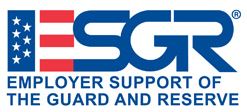
By Debbie Gregory.
Lawmakers are asking the Supreme Court to decide whether military reservists’ unfair dismissal claims can be forced into arbitration by their civilian bosses.
Because the case involves veterans’ rights, the legislators are hopeful that the Supreme Court will show appreciation for our citizen soldiers by allowing them to legally stand up for their workplace rights.
The filing’s intention is to overturn a previous appeals court ruling against Kevin Ziober, a Navy reservist who sued his employer for firing him before his year-long deployment to Afghanistan.
In mid-May, Connecticut Democratic Senator Richard Blumenthal spearheaded the filing of a amici curiae brief , also known as a “friend-of-the-court” brief on behalf of himself, six fellow senators and 13 House members.
The members of Congress urged the Supreme Court to reaffirm a longstanding principle that all veterans’ rights laws must be interpreted for the benefit of veterans. It is also imperative to protect veterans and servicemembers against waiving any of their rights under the Uniformed Services Employment and Reemployment Rights Act (USERRA), including their procedural enforcement rights like the right to file an action in federal court.
“They’re serving and sacrificing so we have these rights, and then they come home and they are denied those very rights that they are fighting to uphold.”
The aforementioned case alleges that in 2012, real estate company BLB Resources told Ziober he was out of a job. The company denied wrongdoing, saying it terminated Ziober for sub-par performance on a federal contract assignment, and not for his deployment.
Upon returning to the U.S., Ziober brought a lawsuit against BLB under the Uniformed Services Employment and Reemployment Rights Act (USERRA) a 1994 law banning companies from discriminating against employees for taking time away from work to serve in the reserves.
If the Supreme Court accepts the lawmakers’ request, it could finally end what has become a pain point for employment in several industries.
Military Connection salutes and proudly serves veterans and service members in the Army, Navy, Air Force, Marines, Coast Guard, Guard and Reserve, and their families.

By Debbie Gregory.
Last month, thirty-five veteran groups banded together and stalled a congressional hearing.
The groups were in the U.S. Capital to weigh in on changes to the Post 9/11 GI Bill. They want change and to close some loopholes.
While they agree on more than they disagree on, the area of disagreement concerns whether or not to charge new enlistees for their GI Bill benefit.
The areas of agreement include:
The major issue that these groups cannot reach consensus on which has divided veteran groups is the Post 9/11 GI Bill expansion and funding it. It has been recommended by some of the veteran groups that new enlistees would pay $2,400 over a two year period to opt into this benefit.
Some Veteran groups have described this as “a tax on troops”.
There will be further discussions between veteran groups on whether to charge servicemembers for the GI Bill.
Tell us what you think and check out the multitude of educational information on our site militaryconnection.com.
Military Connection salutes and proudly serves veterans and service members in the Army, Navy, Air Force, Marines, Coast Guard, Guard and Reserve, and their families.

By Debbie Gregory.
August 21st through August 27th has been proclaimed by President Obama as National Employer Support of the Guard and Reserve Week.
The president said, “For more than two centuries, brave patriots have given of themselves to secure our fundamental rights to life, liberty, and the pursuit of happiness — and in times of both war and peace, members of the National Guard and Reserve have stood ready to don our uniform, answer our Nation’s call, and protect our way of life. This week, we recognize the important role played by the families, employers, and communities of these men and women in ensuring they can step forward and serve our country when they are needed most.”
As the Director of Employer Engagement for California’s ESGR, I see the sacrifices these servicemembers and their families make in order to balance their civilian lives with their commitment to our country’s safety and well-being. I also am privileged to liaise with their outstanding employers, who give their employees the flexibility that enables them to honor this commitment.
The employers who hire our National Guard troops and our Reservists give their employees the support which has been vital to the success, stability, and security of our Nation.
While the Uniformed Services Employment and Reemployment Rights Act of 1994 (USERRA) gives certain rights to uniformed servicemembers and their civilian employers, I have the pleasure of working with the employers who voluntarily sign a statement of support that they will do the right thing by their employees. Their employees do not need to worry about being discriminated against in their employment based on past, present, or future military service.
And that is something we should all honor and celebrate!
Military Connection salutes and proudly serves veterans and service members in the Army, Navy, Air Force, Marines, Coast Guard, Guard and Reserve, and their families.

By Debbie Gregory.
The government does offer some special tax perks so that those who serve don’t have to add income taxes to their list of worries.
When it comes to filing tax returns, military service members have circumstances that differ from civilian tax payers. Due to the varied types of pay service members receive, it is important to identify the types of pay and allowances that are not considered gross income. These exclusions generally include allowances for housing, travel, relocating, combat pay and death allowances. While not subject to tax, they still may have to be detailed when filing the tax return.
Work-related travel expenses (such as business-related meals, lodging, laundry, and business phone calls) that have not been reimbursed are deductible when you are traveling away from your permanent duty station for longer than an ordinary day’s work and you need sleep or food
Armed Forces Reservists who travel more than 100 miles away from home in connection with their service can deduct travel expenses as an adjustment to income.
Service members on active duty who move due to a permanent change of station are entitled to a deduction for reasonable non-reimbursed moving expenses related to travel and the cost of moving household goods and personal effects.
If you are a member of the Armed Forces serving in a designated combat zone, then you can exclude certain pay from your income. The month for which you receive this pay must be a month in which you either served in a combat zone or were hospitalized as a result of wounds, disease, or injury obtained while serving in the combat zone. You need only serve for one or more days in a month to qualify for exclusion for the entire month.
Members of the military serving in combat zones get an automatic 180-day extension from the IRS for filing tax returns, paying taxes and filing refund claims. The automatic extension also applies to making qualified contributions to an IRA. However, this exception does not apply to Social Security and Medicare taxes.
And one final tax perk: free tax preparation is available through MyFreeTaxes for qualified Veterans, active-duty military, and their families. In addition to e-filing, MyFreeTaxes also provides in-person help to individuals and families earning $20,000 or less in 2015. For more information, please visit: www.myfreetaxes.com.
© 2006-2020 Military Connection, Owned by BL, LLC. All rights reserved